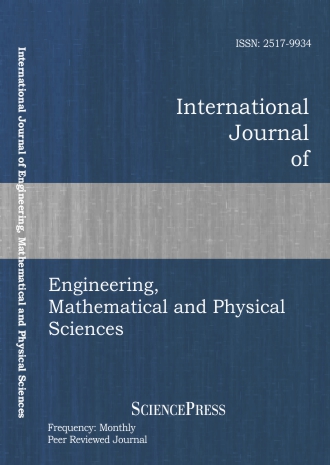
Scholarly
Volume:9, Issue: 8, 2015 Page No: 457 - 460
International Journal of Engineering, Mathematical and Physical Sciences
ISSN: 2517-9934
1185 Downloads
Luminescent Si Nanocrystals Synthesized by Si Ion Implantation and Reactive Pulsed Laser Deposition: The Effects of RTA, Excimer-UV and E-Beam Irradiation
Si ion implantation was widely used to synthesize specimens of SiO2 containing supersaturated Si and subsequent high temperature annealing induces the formation of embedded luminescent Si nanocrystals. In this work, the potentialities of excimer UV-light (172 nm, 7.2 eV) irradiation and rapid thermal annealing (RTA) to enhance the photoluminescence and to achieve low temperature formation of Si nanocrystals have been investigated. The Si ions were introduced at acceleration energy of 180 keV to fluence of 7.5 x 1016 ions/cm2. The implanted samples were subsequently irradiated with an excimer-UV lamp. After the process, the samples were rapidly thermal annealed before furnace annealing (FA). Photoluminescence spectra were measured at various stages at the process. We found that the luminescence intensity is strongly enhanced with excimer-UV irradiation and RTA. Moreover, effective visible photoluminescence is found to be observed even after FA at 900 oC, only for specimens treated with excimer-UV lamp and RTA. We also prepared specimens of Si nanocrystals embedded in a SiO2 by reactive pulsed laser deposition (PLD) in an oxygen atmosphere. We will make clear the similarities and differences with the way of preparation.
Authors:
References:
[1] L. T. Canham, Silicon quantum wire array fabrication by electrochemical